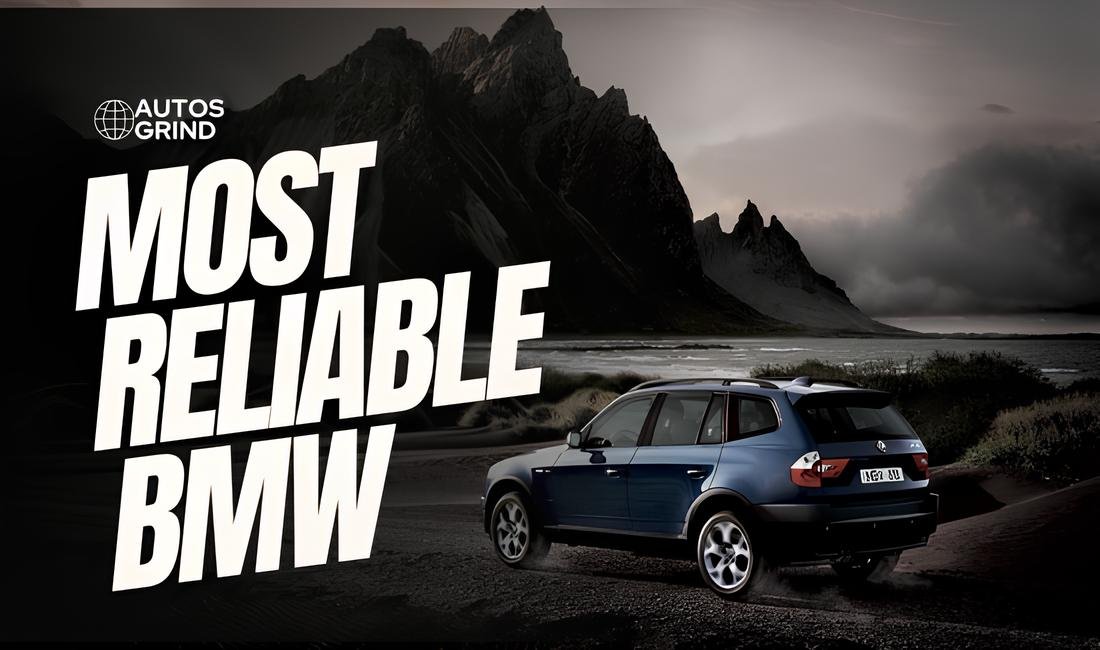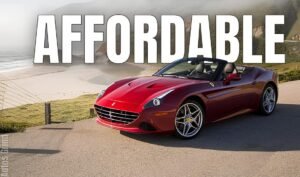When you hear “BMW,” two things come to mind: great-looking autos and expensive maintenance. Most of the time, these cars can be very expensive to repair if something goes bad. However, it is not right to generalize and say that all BMWs are unreliable.
Compared to Mercedes or Audi, BMW has produced many reliable models over the years, but with the used market flooded with options, how do you know which models are reliable?
While BMW is often loved by buyers who value the styling/performance aspects and consider the trim level adequate, reliability is the area where most German car brands like BMW get beaten by Japanese rivals. Luckily enough, BMW has massively improved its reliability game and is ranked the highest among any German Brand in various surveys.
Most Dependable BMW Models You Can Buy
We’ve gathered all the data from trusted sites like J.D. Power and compiled a list of the 10 most reliable BMW models ever built that you can also plan to get this year.
This article will not only help you get the most out of your BMW but also let you not have to spend your entire savings just to maintain your BMW.
2024 BMW X6
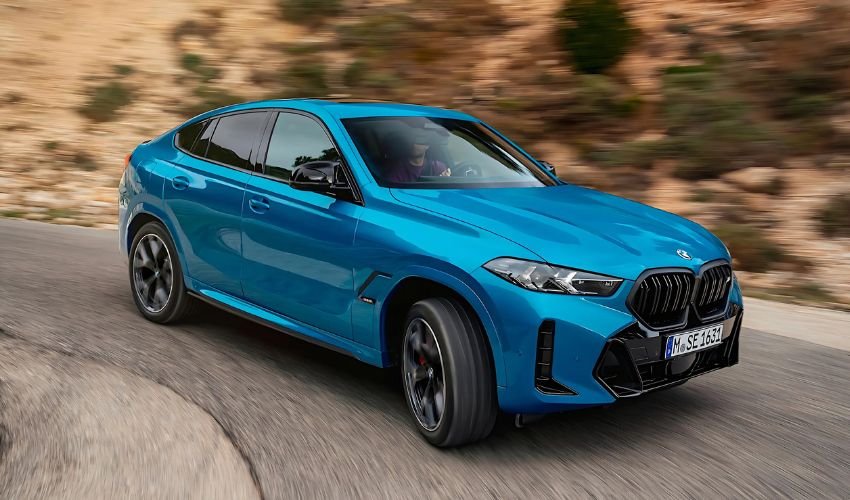
The X6 continues its mission of redefining SUV styling. It pioneered the dramatically sloped roof design, sacrificing some cargo capacity for visual appeal. A segment of potential buyers will be attracted precisely because the X6 looks distinctly different from most SUVs on the market.
The fact is that, despite the radical design, the X6 is surprisingly functional and practical. The storage space at the back is profoundly commodious- almost cavernous- given the dramatically slanted roofline that presumes an ungenerous cargo area from its exterior shape.
Reliability is also not a major issue with the X6. The car gets a J.D. power reliability rating of 79/100. All the newer safety features are standard. You’d still need to bear the absurd maintenance cost, the X6 will give you.
The X6 features a turbocharged 3.0L inline-six engine coupled with a 48V hybrid system, boasting 375 horsepower that enables the X6 to accelerate effortlessly with good fuel economy.
| Model | 2024 BMW X6 |
| Used Car Cost | $55,555 to $95,996 |
| J.D. Power Reliability Rating | 79/100 |
| Avg. Yearly Maintenance Cost | $1,206 (RepairPal) |
| Recalls | 4 |
| NHTSA Safety Rating | Not Rated |
2016 BMW 3 Series
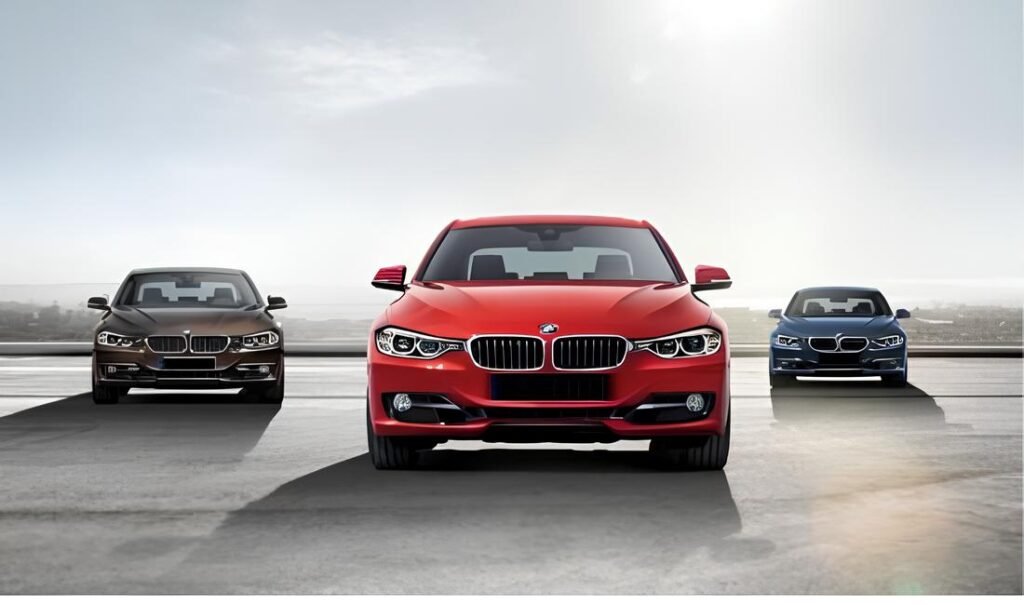
The BMW 3 Series appears on this list for a good reason. It ranks among the top-rated small luxury cars, courtesy of a dependable engine, good available safety options, and a posh interior.
For engine, the 2016 3 Series kept the N20 turbocharged four-cylinders with the addition of a new 3.0-liter turbo-six engine. This new engine churns out 320 horsepower at 330 lb-ft of torque-powerful yet fuel-efficient.
And it’s very safe too, scoring the best five-star rating in government crash tests. J.D. Power gives this car a good score of 83 out of 100. It is also better assembled and has fewer issues than earlier models of this generation, dubbed F30.
BMW 3 Series also gives you a nice interior using high-quality material, fitted with fresh techs like the upgraded iDrive system and some optional safety features.
| Model | 2016 BMW 3 Series |
| Used Car Cost | $9,777 – $25,870 |
| J.D. Power Reliability Rating | 83/100 |
| Avg. Yearly Maintenance Cost | $744 (RepairPal) |
| Recalls | 4 |
| NHTSA Safety Rating | 5 stars (overall) |
You May Also Read: Best Used Luxury Cars
2017 BMW X3
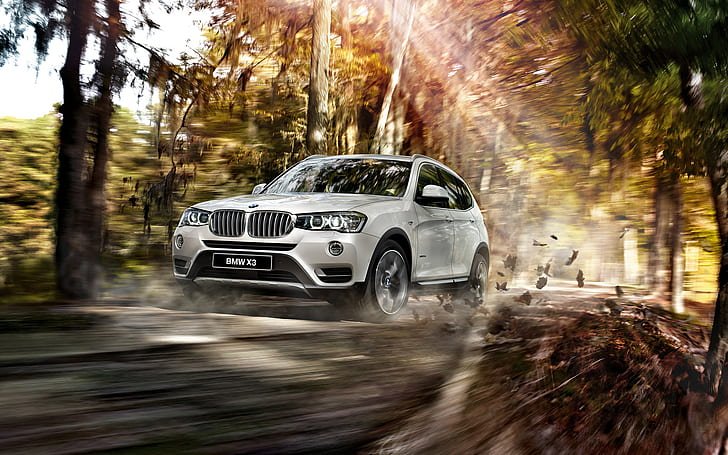
Reowner of its durability, the BMW X3 received a serious boost in performance with the 2017 model. Powered by the powerful B58 engine, it’s an inline-six motor fitted with a turbocharger, developing silky-smooth power while churning out fairly strong torque.
It was mated to BMW’s brilliant 8-speed automatic transmission providing seamless gear shifts that aided both performance and efficiency.
The powertrain options include the xDrive28i, which comes with a 2.0-liter turbocharged inline-four-cylinder ranked at 240 horsepower and 258 lb-ft of torque. AWD is standard.
In terms of safety, the 2017 BMW x3 offers standard features like a rearview camera, parking sensors, and emergency communications. BMW also added advanced tech to X3 such as adaptive cruise control and lane departure warning.
Overall, the combination of improved reliability, strong performance, luxurious features, and practical design makes the BMW X3 one of the stronger BMWs you can buy in the growing category of compact luxury SUVs.
| Model | 2017 BMW X3 |
| Used Car Cost | $16,522 – $25,568 |
| J.D. Power Reliability Rating | 86/100 |
| Avg. Yearly Maintenance Cost | $1,034 (RepairPal) |
| Recalls | 5 |
| NHTSA Safety Rating | 5 stars (overall) |
2024 BMW 8 Series Gran Coupe
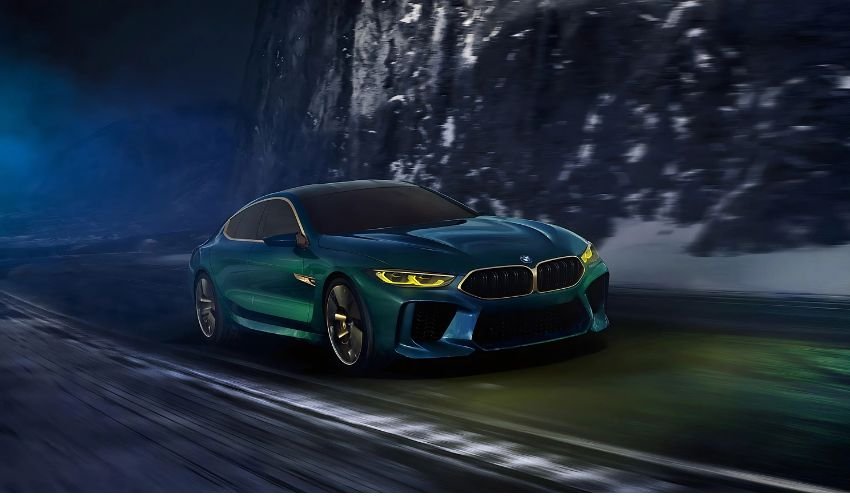
The 8 Series Gran Coupe arrives with the potential to make up for past deficiencies. The earlier 8 series model felt a bit compromised and too stiff to be a luxury Gran Turismo, yet too sizeable to be a proper sports car.
This Gran Coupe becomes more versatile by adding rear passenger space and a larger boot. Of course, space has long represented the ultimate luxury, so this version is arguably better set up for long-distance comfort while still having some sporting pretensions. The switch to a four-door format subtly shifts expectations of its performance character.
The lineup includes three all-wheel-drive options: a 316bhp 840d diesel, a 523bhp M850i V8, and the range-topping 616bhp M8 Competition. All models utilize an advanced eight-speed automatic transmission with extensively customizable driving modes, including Sport mode with three sub-modes.
When it comes to reliability, the 8 Series Gran Coupe gets a reliability rating of 83/100 from J.D. Power carrying the standard the 8 series set previously.
| Model | 2024 BMW 8 Series Gran Coupe |
| Used Car Cost | $86,500 and $105,250 |
| J.D. Power Reliability Rating | 83/100 |
| Avg. Yearly Maintenance Cost | $968 (RepairPal) |
| Recalls | 0 |
| NHTSA Safety Rating | 5 stars (overall) |
Also Check: BMW vs Lexus
2018 BMW X5
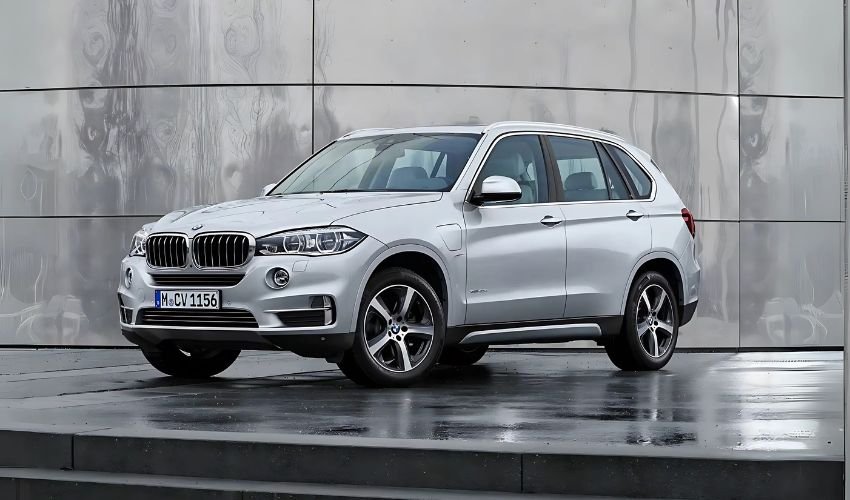
The 2018 BMW X5 remains quintessentially BMW, drawing significant design inspiration from its smaller sibling, the X3. But the size of X5 has grown in all dimensions – increasing in length, width, and height compared to its predecessors.
The X5 offers a range of turbocharged powertrains: a silky smooth gas-fired inline-six producing 300hp, a potent V-8, a hybrid four-cylinder plug-in hybrid variant that produces 308hp combines, and a torquey diesel inline-six giving 255hp.
Every variant features a seamless eight-speed automatic and standard all-wheel drive; the only exception is the gas inline-six model, which features RWD as standard and AWD as a more costly option.
The SUV is equally reliable getting a J.D power rating of 84/100. But while no single feature dramatically differentiates it from the competition. The X5 is still a decent choice in the competitive premium SUV segment.
| Model | 2018 BMW X5 |
| Used Car Cost | $16,995 and $32,998 |
| J.D. Power Reliability Rating | 84/100 |
| Avg. Yearly Maintenance Cost | $1,166 (RepairPal) |
| Recalls | 5 |
| NHTSA Safety Rating | 5 stars (overall) |
2022 BMW 7 Series
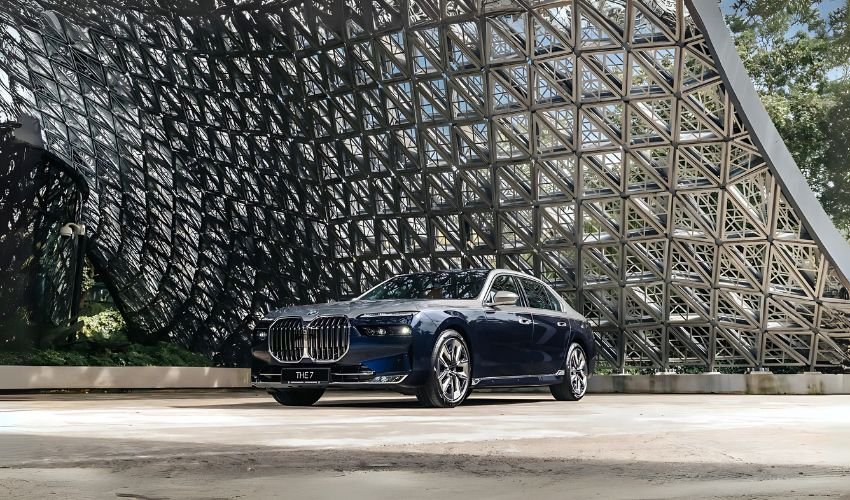
Here’s another one from the BMW series, and the 2022 BMW 7 series is where BMW pretty much peaked in the series lineup. The car is reliable, sporty, spacious, packed with technology, and gives the best driving experience you’d expect from a flagship model.
Engines and transmissions stand out as the 7 Series’ most impressive features. Every powertrain, from the 740i’s 320-hp turbocharged inline-six to the M760i’s extraordinary 601-hp twin-turbo V-12, delivers exceptional smoothness and feels more potent than its official horsepower suggests.
All 7 Series models share a version of the same sophisticated eight-speed automatic transmission. xDrive is optional on the 740i and standard across the rest of the lineup.
Regardless of the selected drive mode, the suspension remains incredibly soft, with minimal body control. With its grand size and sophisticated features, the 2022 BMW 7 Series is an incredibly reliable vehicle that offers an outstanding comfort level that few other cars can match.
| Model | 2022 BMW 7 Series |
| Used Car Cost | $35,170 to $49,981 |
| J.D. Power Reliability Rating | 85/100 |
| Avg. Yearly Maintenance Cost | $847 (RepairPal) |
| Recalls | 0 |
| NHTSA Safety Rating | Not Rated |
2022 BMW X1
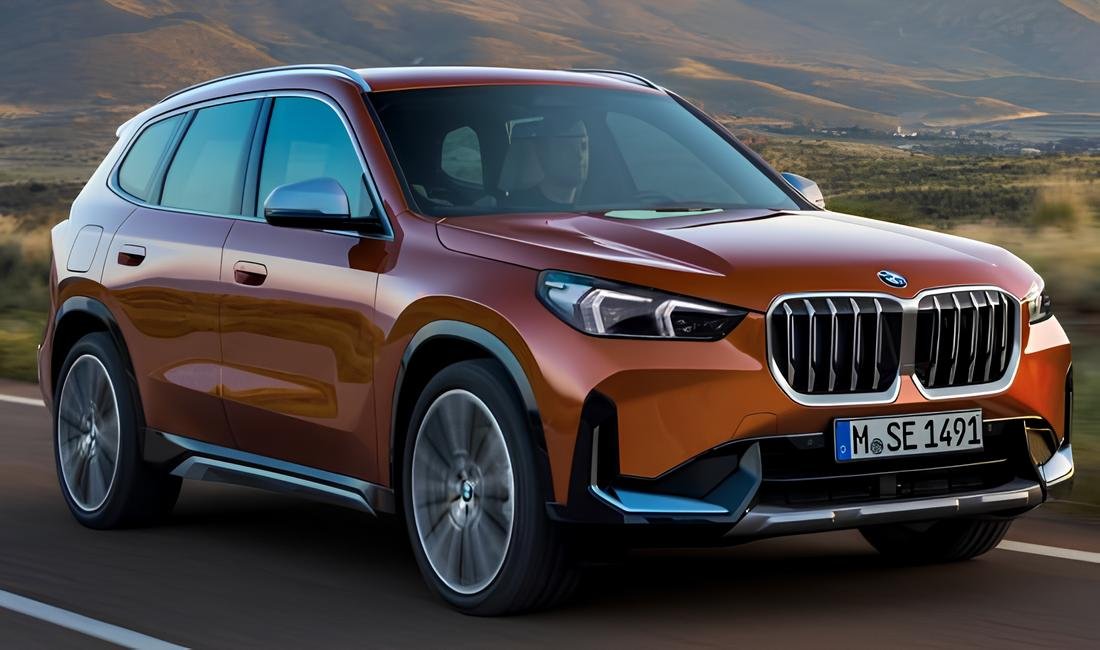
While the ride can be firm, especially with the larger wheel options, the X1 yields crisp handling and a refined driving experience typical of the brand.
The real-world nature of the X1’s crossover SUV design, its easy-to-use infotainment system, and its robust warranty package make it one of the best SUVs that are both luxurious and reliable.
Power for the X1 comes courtesy of a turbocharged 2.0-liter four-cylinder producing 228 horsepower and 258 lb-ft of torque, connected to an 8-speed automatic.
With the above, the little utility is quite peppy, with 60 mph reached in just 6.6 seconds. It’s available front-wheel drive-the sDrive28i-or all-wheel referred to as the xDrive28i. The latter, of course, shows better grip once things get dicey.
Several safety features like forward collision warning, automatic emergency braking, lane departure warning, and automatic high-beam headlamps are added in the X1. It gets the best ratings from NHTSA as the overall 5-star safety rating, from the Insurance Institute for Highway Safety as “Good” for most crash test categories.
| Model | 2022 BMW X1 |
| Used Car Cost | $27,000 to $32,000 |
| J.D. Power Reliability Rating | 86/100 |
| Avg. Yearly Maintenance Cost | $915 (RepairPal) |
| Recalls | 2 |
| NHTSA Safety Rating | 5 stars (overall) |
Also Check: Best Toyota SUV Models
2016 BMW 5 Series
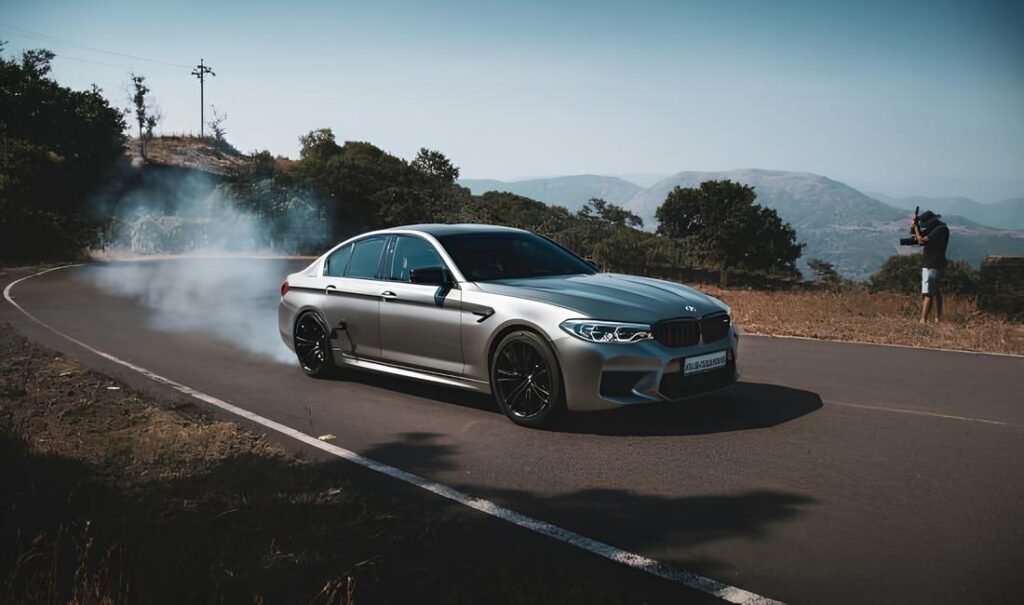
The 2016 BMW 5 Series is another great addition to the most reliable BMWs. It comes with features like stability and traction control, antilock disc brakes, airbags on the sides of front seats, curtain airbags along the sides, and special headrests in the front that move to protect you.
The car’s brakes are very advanced. They wipe the brake rotors dry when it’s wet outside, and they automatically move the brake pads closer to the rotors when the driver suddenly takes their foot off the gas pedal.
The 2016 BMW 5 Series come in multiple trims including the 528i, 535i, 535d, and 550i. The base 528i has a robust 240-horsepower turbocharged 2.0-liter four-cylinder is probably going to surprise you.
The full-on 550i gets an even more potent 445-horsepower twin-turbocharged 4.4-liter V8. All work through an eight-speed automatic transmission that always shifts seamlessly and returns decent fuel economy.
The 5 Series is relatively fuel-efficient, especially the 535d diesel model capable of covering 26 MPG in the city and 38 MPG on the highway.
| Model | 2016 BMW 5 Series |
| Used Car Cost | $13,724 – $20,827 |
| J.D. Power Reliability Rating | 88/100 |
| Avg. Yearly Maintenance Cost | $825 (RepairPal) |
| Recalls | 9 |
| NHTSA Safety Rating | 5 stars (overall |
2017 BMW 2 Series
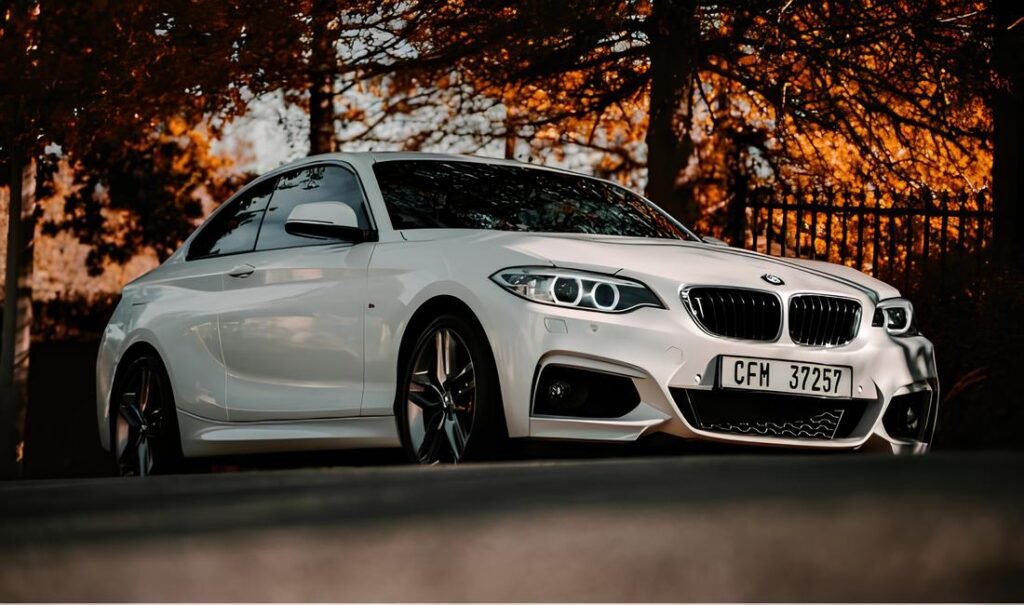
The 2017 BMW 2 Series is not a simple boring vehicle that is reliable but doesn’t offer the looks. With a J.D. Power quality and reliability score of 88, The 2017 BMW 2 Series offers both luxury and sportiness with amazing reliability. The lineup is primarily divided into two trim levels: the 230i and the performance-oriented M240i.
The 230i is equipped with a turbocharged 2.0-liter four-cylinder engine, banging for a hearty 248 horsepower and 258 lb-ft of torque. This lets the powertrain have enough push for all the daily driving duties and merging on the highway.
For those interested in more power, there is the M240i, powered by a seriously potent turbo inline-six, available in the 3.0-liter variety; it kicks out 335 horsepower and 369 lb-ft of torque. It will take the M240i from an estimated 0-60 mph in 4.2 s, which firmly places it in sports car territory.
Other highlights including the excellent handling characteristics make the 2 Series stand out. With adaptive suspension dampers that constantly adjust depending on the drive giving maximum comfort to the driver and balancing the sportiness.
| Model | 2017 BMW 2 Series |
| Used Car Cost | $14,980 – $25,998 |
| J.D. Power Reliability Rating | 88/100 |
| Avg. Yearly Maintenance Cost | $922 (RepairPal) |
| Recalls | 0 |
| NHTSA Safety Rating | Not Rated |
2013 BMW 1 Series
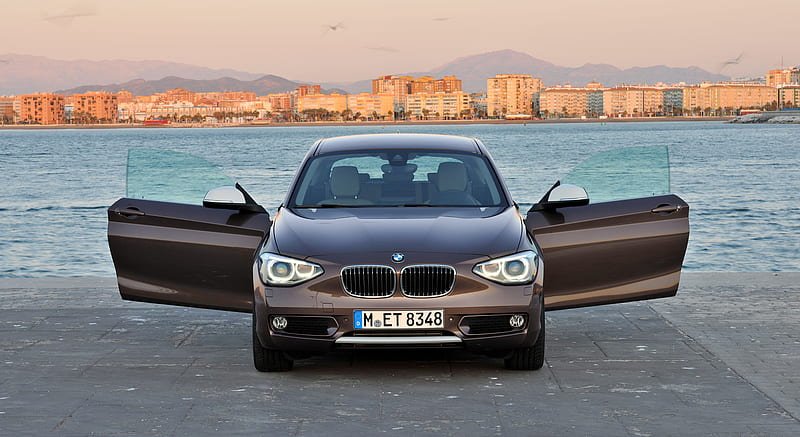
With a stellar J.D. Power reliability score of 89 out of 100, the 2013 BMW 1 Series is without a doubt among our most reliable BMWs on this list ever produced.
Not only is the 2013 BMW 1 Series commended for its engaging driving dynamics and high level of luxury, but also its reliability and durability.
Available in both coupe and convertible body styles, it comes with three different trims (128i, 135i, and the performance-oriented 135is) are available.
The 128i is powered by a naturally aspirated 3.0-liter inline-six engine, making 230 horsepower. It represents a good balance between power and efficiency. For those looking for additional muscle, the 135i and 135is models come equipped with a turbocharged 3.0-liter inline-six engine, with the 135is producing 320 horsepower.
Despite the absence of U.S. crash-test results, the 2013 BMW 1 Series is a nimble, rear-wheel drive compact car that offers both reliability and performance.
| Model | 2013 BMW 1 Series |
| Used Car Cost | $10,200 – $14,999 |
| J.D. Power Reliability Rating | 89/100 |
| Avg. Yearly Maintenance Cost | $968 (RepairPal) |
| Recalls | 3 |
| NHTSA Safety Rating | Not Rated |
Most Reliable BMW Models — FAQs
With a stellar J.D. Power reliability score of 89 out of 100, the 2013 BMW 1 Series is the most reliable BMW ever produced.
No, not all BMW models have the same reliability. It’s essential to research specific models, as some have better track records than others based on owner feedback and industry ratings.
2006-2011 BMW 3 Series
2011-2014 BMW X5
2008-2010 BMW X6
2013, 2015, 2020 BMW X3
The cheapest BMW to maintain is the 3 Series, particularly the 2013-2018 models, with an average annual maintenance cost of about $748.
The cheapest German car brand to maintain is Audi, with lower average maintenance costs compared to BMW and Mercedes-Benz.

